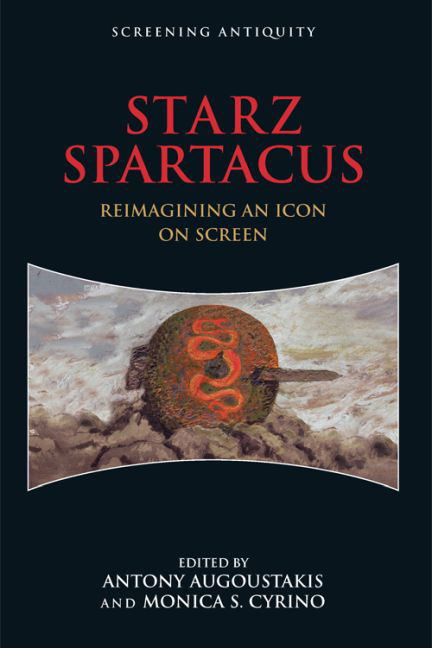Book contents
- Frontmatter
- Contents
- Series Editors' Preface
- Editors' Acknowledgments
- Contributors
- List of Illustrations
- Episode Listing
- Introduction: Reimagining a New Spartacus
- PART I HEROES AND HEROISM
- PART II SOCIAL SPACES
- PART III GENDER AND SEXUALITY
- PART IV SPECTACLE AND VIOLENCE
- 11 Base Pleasures, Spectacle, and Society
- 12 Draba's Legacy and the Spectacle of Sacrifice
- 13 Violence and Voyeurism in the Arena
- Filmography
- Bibliography
- Index
11 - Base Pleasures, Spectacle, and Society
from PART IV - SPECTACLE AND VIOLENCE
Published online by Cambridge University Press: 27 April 2017
- Frontmatter
- Contents
- Series Editors' Preface
- Editors' Acknowledgments
- Contributors
- List of Illustrations
- Episode Listing
- Introduction: Reimagining a New Spartacus
- PART I HEROES AND HEROISM
- PART II SOCIAL SPACES
- PART III GENDER AND SEXUALITY
- PART IV SPECTACLE AND VIOLENCE
- 11 Base Pleasures, Spectacle, and Society
- 12 Draba's Legacy and the Spectacle of Sacrifice
- 13 Violence and Voyeurism in the Arena
- Filmography
- Bibliography
- Index
Summary
Spartacus has long been a name that is synonymous with spectacle. Regardless of the specific hue in which the dimly attested historical figure has been cast by those who have (re)interpreted his myth over the course of centuries, Spartacus and his world remain, as they have always been, a spectaculum in all of the word's Latin nuance: something to be seen, witnessed, and experienced in public which casts an alluring spell over an engaged audience. Precisely what was spectacular about the man and his saga, of course, have varied with time and context. To Florus (Epitome of Roman History 2.8) and other Imperial Romans it was a spectacle of defeat; to playwrights such as Bernard-Joseph Saurin (Spartacus, 1760) and Robert Montgomery Bird (The Gladiator, 1831) it was a triumph of freedom over servitude; while to the Italian author Rafaello Giovagnoli and Giovanni Enrico Vidali, the filmmaker he inspired, it was a resounding appeal for Italian nationalism (Spartaco, 1874 and 1913, respectively). With the adaptation of Howard Fast's novel (1951) into Stanley Kubrick's iconic film Spartacus (1960) much of the story's valence remained the same, but its visual exposition became something marvelous. Not only the communist-tinged narrative of social revolution, but the film's scope, its opulence, and the sheer scale of the production were spectacular in and of themselves. The sight of Rome in all of its sprawling glory, the gilded decadence of Crassus’ villa, the masses of thousands-strong armies clashing, all shot in the dazzling Super 70 Technirama format, made the film along with its narrative into miranda, things which ought to inspire amazement. Yet in all of these depictions of Spartacus, the real spectacle, as it were, only begins once the slave and his followers have escaped the ludus of Batiatus. The Thracian's brutal training and his experience in the arena were only necessary prequels to his more glorious revolt which formed the core of his saga and its meaning.
Such had always been the case until the STARZ network produced its controversial hit series Spartacus in 2010. Whatever the series may have represented to the dozens of critics who expressed opinions ranging from righteous religious condemnation to adolescent fanboy praise, Spartacus: Blood and Sand and its subsequent seasons had struck a chord.
- Type
- Chapter
- Information
- STARZ SpartacusReimagining an Icon on Screen, pp. 175 - 191Publisher: Edinburgh University PressPrint publication year: 2017



